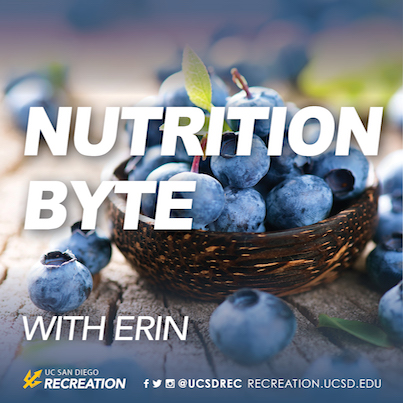By Vanessa Minehan, Dietetic Intern
There is a stigma surrounding carbohydrates, but they are not bad for you. Carbohydrates also referred to as carbs, is a food required by the human body to function every day. The body requires a breakdown of carbs into glucose for fuel. Your brain and muscles prefer this source of energy to function. After consuming carbs, the body digests and breaks down this food into sugar molecules. These sugars enter the bloodstream from the gut. Insulin is then released from the pancreases to catch and escort the sugar molecules to cells throughout your body. This process is where people think carbs make you fat. However, it is not the food group of carbohydrates but rather the type and quantity consumed in relation to how active you are and how balanced your meals are. There are two types, complex and refined. Complex carbohydrates breakdown and absorb more slowly, leading to less insulin needed and a more or less stable blood sugar level. Conversely, refined carbohydrates spike blood sugar levels and require the release of more insulin in order to catch all those sugars and escort it where it needs to go. Refined carbs are not found in nature. The grain is processed by stripping away the bran coating that contains fiber, leaving a pellet of sugar. This is a great example of why whole food options are more nutritious for your body. Here are some examples of the two types:
| Complex
o Fruits o Vegetables o Sweet potato o Whole grains · Oats, quinoa, brown rice o Beans · Including hummus, lentils, edamame, tofu o Nuts o Seeds |
Refined
o Cake o Pastries o Breakfast cereals o White flour o White bread o White rice o Doughnuts o Added sugars o Sodas
|
Complex carbohydrates also boast essential nutrients such as vitamins, minerals, antioxidants, phytonutrients, fiber, and protein. There is a misconception around fruit in that it is too high in sugar when in fact it is loaded with so many of those essential nutrients. Another misconception is to avoid all white foods. Enjoy potatoes, cauliflower, jicama, nuts, seeds, garlic, and onions to name a few. There is no such thing as a bad food. Listen to your body on what it needs or wants. Moderation is best. Keep in mind carbs are not our enemy, but understanding their differences and how to incorporate them onto your plate in a way that nourishes and brings health is vital.
If you’d like assistance on your journey to well-being or feel that you would like to improve your relationship with food feel free to contact the Recreation Dietitian, Erin @ ekukura@ucsd.edu. For more information on services go to: https://recreation.ucsd.edu/wellness-services/nutrition/


